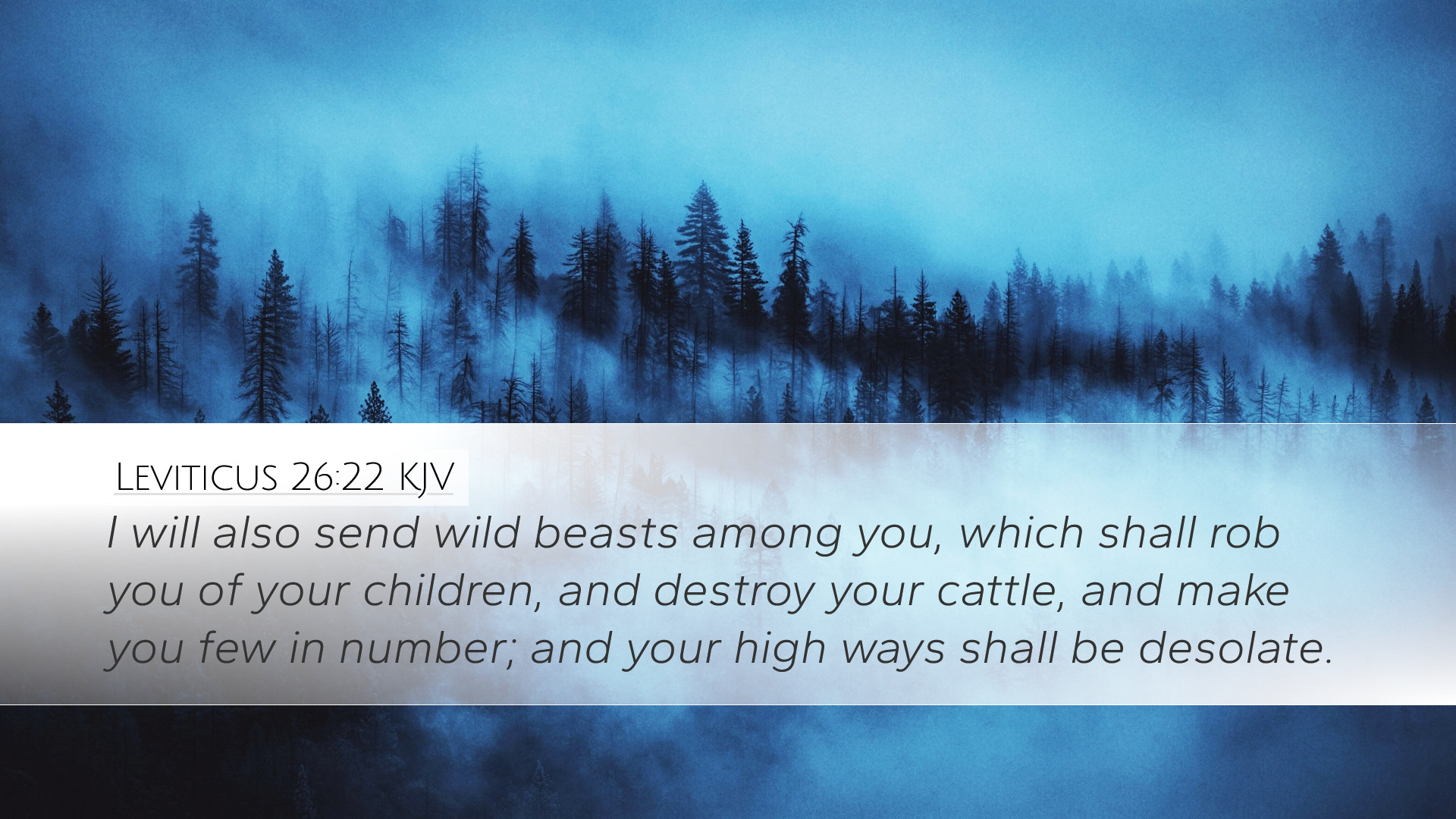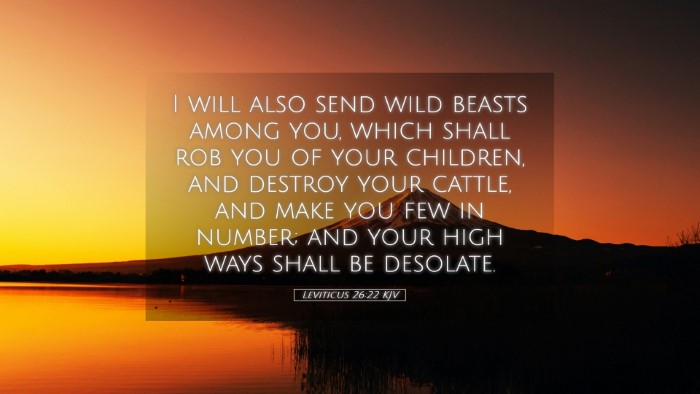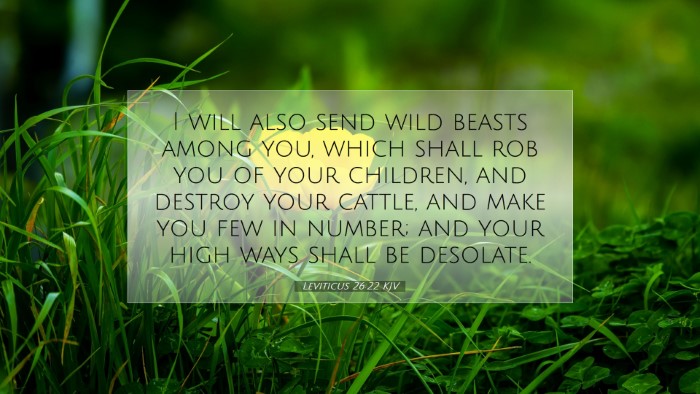Leviticus 26:22 Commentary
Leviticus 26:22 states:
"I will send wild animals against you, and they will rob you of your children; they will destroy your livestock and make you so few in number that your roads will be deserted."
Context and Overview
This verse is part of the larger context of Leviticus 26, where God lays out the blessings for obedience and the curses for disobedience. It serves as a reminder to Israel about the vital relationship between their adherence to God's commandments and the well-being of their nation.
Theological Insights
-
Covenantal Relationship:
God’s promises in this chapter highlight His covenantal relationship with Israel. The blessings are contingent on their obedience, while the curses, including the threat of wild animals, demonstrate the seriousness of their obligation to uphold the law.
-
Divine Sovereignty:
The declaration of sending wild animals reveals God’s sovereignty over creation and how He can employ natural forces as instruments of judgment. This resonates with the theological theme that God controls both the blessings and the curses as part of His divine authority.
Commentary from Matthew Henry
Matthew Henry emphasizes the dire consequences of disobedience. He warns that the introduction of wild animals symbolizes chaos and destruction not just to human life, but to the whole ecosystem that sustains Israel's agriculture and economy. The loss of children and livestock signifies the breakdown of familial and communal structures.
Henry notes that such punishments serve as a grim reminder of the seriousness of sin against God, portraying how rebellion against divine authority can lead to national calamity.
Insights from Albert Barnes
Albert Barnes focuses on the historicity and realization of these prophecies. He points out that instances of Israel facing wild animals and plagues occurred throughout their history, particularly in times when they strayed from God. The verse serves as prophetic foresight, illustrating how disobedience leads to real and tangible consequences.
He also underscores the importance of recording such warnings for future generations, making it clear that the covenant relationship with God is ongoing and that the ramifications of sin extend beyond personal judgment to national suffering.
Insights from Adam Clarke
Adam Clarke discusses the phrase "wild beasts" and interprets it not only in a literal sense but also in a metaphorical way as representing hostile nations or destructive forces. Clarke brings in a socio-political lens, suggesting that when the nation is at odds with God, external dangers may arise as a consequence of their spiritual decline.
He also offers a pastoral perspective, reminding leaders and the laity of their responsibility to uphold God’s commands to ensure their communal protection against external threats.
Applications for Today
-
Understanding Judgment:
This verse compels modern believers to reflect on the gravity of sin and the potential consequences of turning away from God. It encourages self-examination and communal accountability.
-
Incorporating Reminders of God's Sovereignty:
Church leaders are encouraged to preach on God’s control over all aspects of life, fostering an understanding of both God’s mercy and justice in a contemporary context.
-
Ecological Awareness:
Given the implications of destruction to livestock and the land, this verse can be a springboard for discussions on stewardship of the environment within the church community.
Conclusion
Leviticus 26:22 serves as a pivotal reminder of the consequences of turning away from God. Through the cumulative insights offered by various commentators such as Matthew Henry, Albert Barnes, and Adam Clarke, we find a rich understanding that encompasses both the immediate theological implications for ancient Israel and the broader spiritual truths that remain relevant today.


